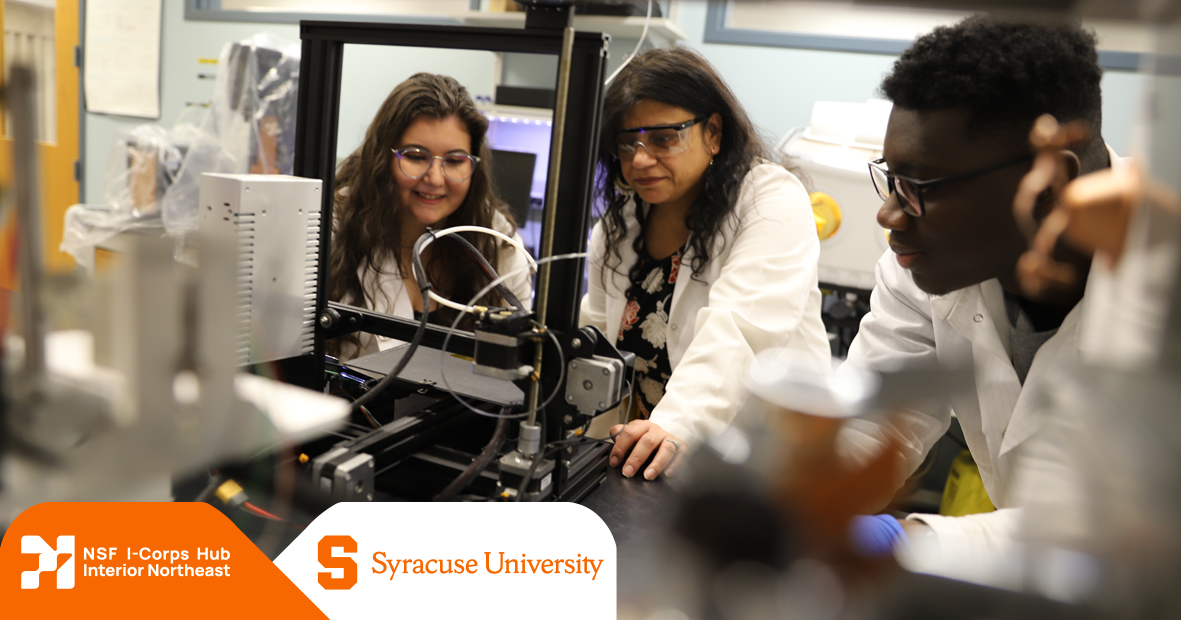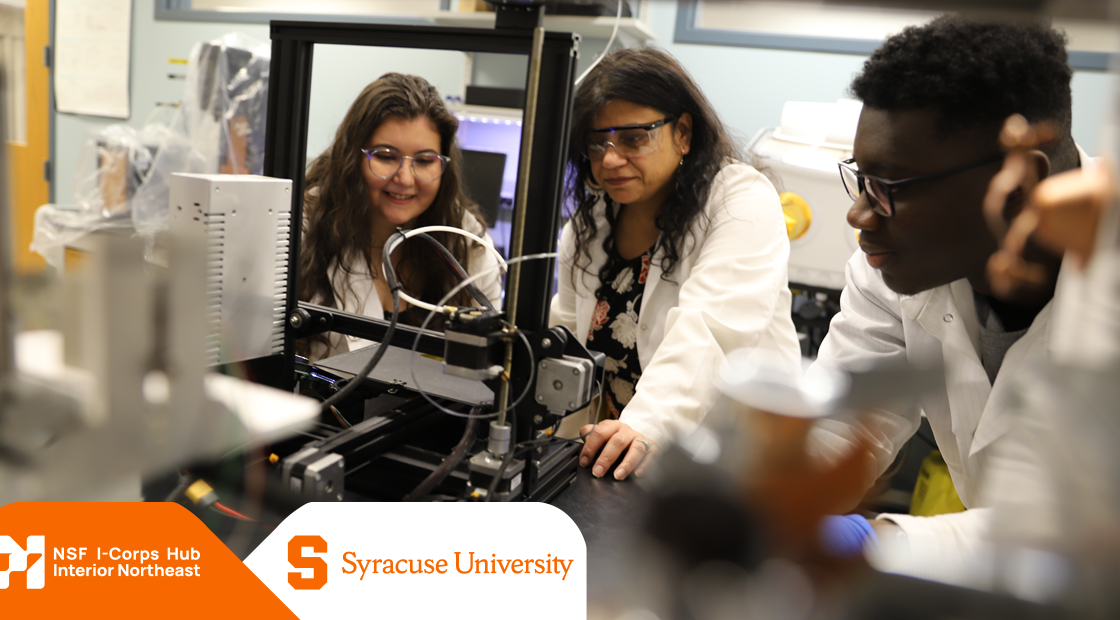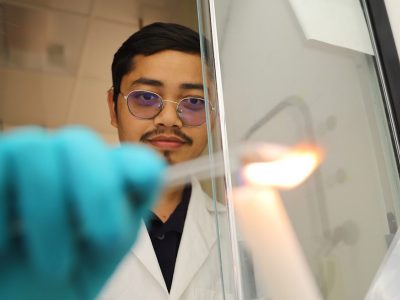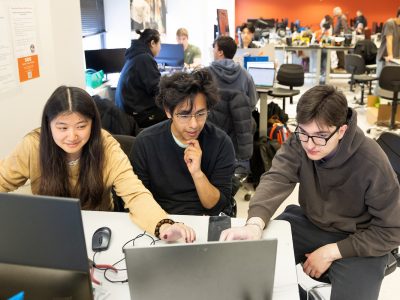
University researchers with groundbreaking ideas in semiconductors, microelectronics or advanced materials are invited to apply for an entrepreneurship-focused hybrid course offered through the National Science Foundation (NSF) Innovation Corps (I-Corps) program.
The free virtual course runs from Sept. 15 through Oct. 15, with an opportunity for an in-person immersion experience at SEMICON West, North America’s premier microelectronics conference, in Phoenix, Arizona, Oct. 7-9. Interested individuals can apply by Aug. 20.
Hosted by Syracuse University and the University of Rochester as part of the Interior Northeast I-Corps Hub (IN I-Corps), this NSF-sponsored course is open to faculty, postdocs, Ph.D. and master’s students, undergraduates and community-based startups working on semiconductor-related technologies with commercial potential. Syracuse’s NSF I-Corps program is a partnership between the Center for Advanced Systems and Engineering at Syracuse University, the Martin J. Whitman School of Management and Syracuse University Libraries.
Teams selected to participate may receive up to $5,000 in travel reimbursement, enabling participants to conduct in-person customer discovery interviews and attend specialized workshops during SEMICON West. Participation in this conference provides unmatched exposure to global industry leaders, cutting-edge technologies and potential collaborators or customers. Conference attendees include executives, engineers, startups and policy leaders shaping the future of chips.
The course provides hands-on entrepreneurship training and one-on-one coaching tailored to researchers working in far-reaching sectors, from advanced lithography and transistor miniaturization to artificial intelligence hardware and high-power materials. The course emphasizes emerging areas critical to the next generation of semiconductor innovation. Applications can range from 3D integrated circuits, system-on-chip integration and computing chips that mimic the human brain’s neural architecture for tasks like pattern recognition, learning and sensory processing. Big data and machine learning innovations are of interest, as well as conventional semiconductor design and manufacturing applications.
The course is of benefit to anyone interested in being part of the research, design, commercialization and supply chain associated with these industries.
Visit the Syracuse University Libraries website to read the full story.



